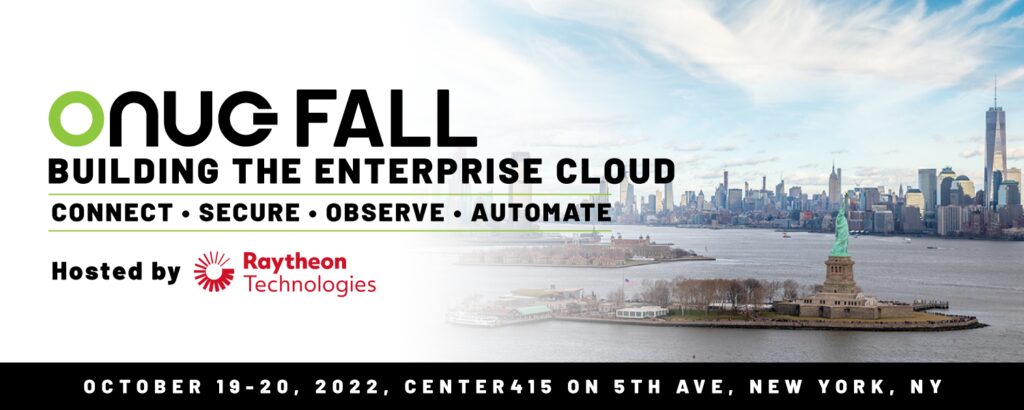
Routing Security as Supply Chain Security: Threats and Opportunities
Is your ISP or cloud provider your first line of defense in the supply chain, or your weakest link?
Enterprises increasingly store their assets, conduct operations, and serve customers via the Internet. This significantly extends their security perimeter beyond physical boundaries and makes them vulnerable to infrastructure attacks, including routing attacks. It aggravates the security challenges that they deal with already, such as ransomware, malware, APTs and denial of service attacks.
It also creates a critical dependency on the reliability and security of the data flowing across the Internet. Routing and traffic security thus becomes an important part of your supply chain security. Therefore, enterprises must carefully vet their ISPs, CDNs, and cloud providers to verify they secure traffic and safeguard data.
MANRS+ is a framework currently in active development that focuses on routing and traffic security and creates a second, elevated tier of MANRS[1] participation for organizations that comply with more stringent requirements and auditing. In this session, we’ll explain the framework and examine the requirements enterprises should consider from their connectivity providers.
[1] Mutually Agreed Norms for Routing Security, or MANRS, is a community of over 1,000 security-minded organizations committed to making the global routing infrastructure more robust and secure.
I joined the Internet Society in March 2011. Prior to joining, I was Chief Technical Officer of RIPE NCC, responsible for the company’s IT strategy, including the management of one of the DNS root servers, K-root.
I bring more than 20 years of experience in the Internet technical community, and I’m actively following Regional Internet Registry (RIR) and Internet Engineering Task Force (IETF) activities. In 2010-2012 I was a member of the Internet Architecture Board (IAB).
My primary area of interest is security and resilience of the Internet infrastructure, bridging technology and policy. This work is based on active engagement with the operator, research, and policy communities. I was instrumental in creating an industry-led initiative called Mutually Agreed Norms for Routing Security (MANRS) and the development of its programs. I am also one of the main contributors to the Internet Impact Assessment Toolkit (IIAT), which was developed and promoted by the Internet Society.
I’m based in Amsterdam, The Netherlands.
Matt Davy has been a Chief Network Architect at Visa since 2016. During that time he has led multiple transformational projects focused on Visa’s global backbone, Internet connectivity and network automation. He is also active in efforts to improve Internet routing security including co-chairing a working group within the Mutually Agreed Norms for Routing Security (MANRS) initiative. Prior to joining Visa, Matt spent 19 years in various areas of the networking industry including large Internet Service Providers, universities and startups and has a broad range of experience including operations, engineering, research, training and product development.
In his role as Distinguished Engineer at Comcast, Tony Tauber focuses on Backbone and Core network architecture and engineering with particular attention to measurement, manageability, and automation as well as network and routing security. He also partners with the research and education communities on projects and previously chaired the North American Network Operators Group (NANOG) Program Committee.
In the past, he held senior network engineering positions at BBN, GTE Internetworking, Genuity, Level3, and MIT Lincoln Lab as well as served as co-chair of the Routing Protocol Security working group in the IETF.
He has been the lead engineer and architect for Comcast’s RPKI and Anycast routing initiatives.
Related events
-

Cradlepoint Proof of Concept: Adding Zero Trust in 1-2-3
October 25, 2023, 11:15 am ETFall 2023View Event -

Microland Proof of Concept: Achieving Flawless Performance of Your Network
October 24, 2023, 3:30 pm ETFall 2023View Event -

Nutanix Proof of Concept: Ransomware Resiliency Beyond Recovery
October 25, 2023, 11:45 am ETFall 2023View Event -

BlueCat Networks Proof of Concept: Unleashing the Power of Multi-cloud DNS: Building Resilient and High-Performing Modern Infrastructures
October 24, 2023, 1:50 pm ETFall 2023View Event -

Cisco Proof of Concept: Cisco Multicloud Defense – Elevate Your Cloud Network Security
October 25, 2023, 12:45 pm ETFall 2023View Event -

Navigating Transformational Changes in the Quantum and AI Era
October 25, 2023, 11:15 am ETFall 2023View Event -

NetOne Systems Proof of Concept: Governing the New Technologies like ChatGPT from a Financial/Security Perspective Using PaC in a Hybrid-cloud Environment
October 24, 2023, 10:40 am ETFall 2023View Event -

ONUG Collaborative Birds-of-a-Feather: Network Orchestration & Automation
October 25, 2023, 1:05 pm ETFall 2023View Event -

ONUG Collaborative Birds-of-a-Feather: Policy As Code
October 25, 2023, 11:55 am ETFall 2023View Event -

ONUG Collaborative Birds-of-a-Feather: Zero Trust
October 25, 2023, 11:35 am ETFall 2023View Event -

ONUG Collaborative Birds-of-a-Feather: One Consistent Secure Data Plane Framework
October 25, 2023, 11:15 am ETFall 2023View Event -

Securing Your Multicloud Future with Cisco – Cisco Main Stage Keynote
October 25, 2023, 10:25 am ETFall 2023View Event -

A New Golden Age for Infrastructure: Addressing Security and Control in the Age of AI and Multicloud – Nutanix Main Stage Keynote
October 25, 2023, 10:45 am ETFall 2023View Event -

Private 5G Industry Analyst Roundtable and Audience Q&A
October 24, 2023, 4:45 pm ETFall 2023View Event -

Spotlight on Oceus: 5G Private Cellular for Mission-Critical Environments
October 24, 2023, 2:35 pm ETFall 2023View Event -

Keynote: Private 5G Networks: Challenges, Opportunities & New Ways to Think
October 24, 2023, 1:20 pm ETFall 2023View Event -

Aviatrix Proof of Concept: Exploring Policy-as-Code Based Multicloud Security
October 24, 2023, 2:45 pm ETFall 2023View Event -

Nokia Proof of Concept: Networks that Speak Your Language: ChatGPT Integration
October 24, 2023, 10:55 am ETFall 2023View Event -

Elisity Proof of Concept: Redefining Microsegmentation: Elisity’s Identity based Approach to Cybersecurity
October 24, 2023, 4:10 pm ETFall 2023View Event -

F5 Proof of Concept: Seamless Hybrid, Multi Cloud Network Fabric with F5 Distributed Cloud
October 24, 2023, 4:20 pm ETFall 2023View Event -

Tenable Proof of Concept: Cyber Exposure Management: 5 Critical Pillars to Quantify and Reign in Cyber Risk
October 24, 2023, 3:25 pm ETFall 2023View Event -

Gluware Proof of Concept: Automate a Cisco TrustSec Network Using Gluware
October 24, 2023, 2:15 pm ETFall 2023View Event -

Alkira Proof of Concept: Connecting China – Standardization without Compromise
October 24, 2023, 4:05 pm ETFall 2023View Event -

Quantea Proof of Concept: Accurately Assessing the Impact of Data Breaches to Minimize Compliance Fines and Penalties
October 24, 2023, 3:40 pm ETFall 2023View Event -

Routing Security as Supply Chain Security: Threats and Opportunities
October 25, 2023, 9:15 am ETFall 2023View Event -

Bias Towards Building with Deployable Vulnerability Layers: An Approach to Container Security
October 24, 2023, 1:45 pm ETFall 2023View Event -

Itron and ISG on the Journey to a Cloud-Centric WAN – Sponsored by Apcela
October 24, 2023, 2:45 pm ETFall 2023View Event -

The Rise of the Business Internet – Sponsored by Graphiant
October 24, 2023, 10:40 am ETFall 2023View Event -

Network to Code Proof of Concept: From Data to Decisions: Mastering Device Lifecycle with Nautobot
October 24, 2023, 10:55 am ETFall 2023View Event -

Apcela Proof of Concept: Tapping the Power of Open Access to Unleash Your Network
October 24, 2023, 1:35 pm ETFall 2023View Event -

Zscaler Proof of Concept: From Complex Routable WANs to Seamless Zero Trust Connectivity
October 24, 2023, 3:45 pm ETFall 2023View Event -

Kivera Proof of Concept: Preventive Guardrails to Enable Cloud Native Consumption
October 24, 2023, 3:10 pm ETFall 2023View Event -

IP Fabric Proof of Concept: Manage Your Network, Not Your Network Devices
October 24, 2023, 1:30 pm ETFall 2023View Event -

Dell Technologies Proof of Concept: Dell Enterprise SONiC – 3rd Party Container Mgmt
October 24, 2023, 3:15 pm ETFall 2023View Event -

NetBox Labs Proof of Concept: Network Automation Success Relies on a Network Source of Truth
October 24, 2023, 1:15 pm ETFall 2023View Event -

Graphiant Proof of Concept: Leverage the Power of Jumbo Frames to Accelerate Your Cloud Workloads
October 24, 2023, 2:05 pm ETFall 2023View Event -

World Wide Technology Proof of Concept: WWT’s Security Jam CTF Event
October 24, 2023, 1:45 pm ETFall 2023View Event -

Asimily Proof of Concept: How to Build an Incident Response Program
October 24, 2023, 3:55 pm ETFall 2023View Event -

Infinidat Proof of Concept: AUTOMATION with SnapSync
October 24, 2023, 10:40 am ETFall 2023View Event -

CloudQuery Proof of Concept: Infrastructure Asset Inventory and Automated Multi-Cloud Compliance with CloudQuery
October 24, 2023, 12:45 pm ETFall 2023View Event -

Keynote: Dynamic Edge Segmentation: Insights into GSK’s Hyperconnected Smart Manufacturing
October 24, 2023, 9:05 am ETFall 2023View Event -

Fortinet Proof of Concept: Fortinet Cloud Secure: Dynamic Cloud Security PoC
October 24, 2023, 2:00 pm ETFall 2023View Event -

Broadcom Proof of Concept: Prove Your Innocence 90% Faster with End-to-End Active Network Testing
October 24, 2023, 1:15 pm ETFall 2023View Event -

Riverbed Proof of Concept: Harnessing the Power of Unified Observability: Actionable Insights and Intelligent Automation
October 24, 2023, 2:35 pm ETFall 2023View Event -

AutoCloud Proof of Concept: Automating Your Automation
October 24, 2023, 2:50 pm ETFall 2023View Event -

Selector AI Proof of Concept: Enhanced Observability and Correlation for Next Generation Networks with Selector AI
October 25, 2023, 1:15 pm ETFall 2023View Event -

Qrypt Proof of Concept: Quantum-Secure Multi-Cloud Deployments
October 25, 2023, 12:00 pm ETFall 2023View Event -

Software Bill of Material: A Three Step Plan for Maximum Effectiveness
October 25, 2023, 11:45 am ETFall 2023View Event -

Keynote – NaaS: The Evolution from Private Routed WANs to “The Network Is The Cloud”
October 24, 2023, 9:55 am ETFall 2023View Event -

Keynote: The Need for Closely Integrated Collaboration between Networking and Cyber Security Teams: A GSK Case Study
October 25, 2023, 11:45 am ETFall 2023View Event -

Revolutionizing B2B Connectivity: Building a NaaS Backbone for Customer, Partner & Supplier Engagement
October 24, 2023, 2:15 pm ETFall 2023View Event -

Unlocking the Power of Network-as-a-Service (NaaS): Use Cases and Deployment Options
October 24, 2023, 12:45 pm ETFall 2023View Event -

Winning Use Cases for Private 5G – Sponsored by Verizon
October 24, 2023, 1:50 pm ETFall 2023View Event -

Welcome to ONUG Fall 2023 Pre-game Day 2: Enterprise Cloud: Connect, Secure, Automate & Control
October 25, 2023, 8:30 am ETFall 2023View Event -

Welcome to ONUG Fall 2023 Pre-game: Enterprise Cloud: Connect, Secure, Automate & Control
October 24, 2023, 8:00 am ETFall 2023View Event -

ONUG Conference Day 1 Wrap Up and Networking Event
October 24, 2023, 5:30 pm ETFall 2023View Event -

NaaS Working Group Update: “What is NaaS? What is Its Value and Potential? What You Need to Know Now”
October 25, 2023, 1:15 pm ETFall 2023View Event -

Cloud Native Security Working Group Update: A Practitioner’s Guide to Zero Trust Security
October 24, 2023, 1:15 pm ETFall 2023View Event -

Policy as Code Working Group Update: Exploring Policy-as-Code Use Cases
October 25, 2023, 11:15 am ETFall 2023View Event -

Keynote: How to Drive Modernization and Redesign for Agility and Risk Reduction
October 25, 2023, 9:40 am ETFall 2023View Event -

Keynote: Exploring Generative AI & Large Language Models: Maturity, Policy, and Enterprise Implementation
October 25, 2023, 9:00 am ETFall 2023View Event -

Demystifying Kubernetes Bill of Materials (KBOM): A Crucial Asset for Enterprise Cybersecurity
October 24, 2023, 4:45 pm ETFall 2023View Event -

Cloud Network Design Patterns: Bridging the Industry Gap and Optimizing Business Outcomes
October 24, 2023, 4:45 pm ETFall 2023View Event -

ACG Working Group Update: Report on the Outcome of the Multi-Cloud Cybersecurity Space Jam
October 25, 2023, 12:45 pm ETFall 2023View Event -

Hyperautomation Working Group Update: The Age of Hyperautomation: Redefining Enterprise Efficiency
October 24, 2023, 4:00 pm ETFall 2023View Event -

Addressing Industry Challenges around Vulnerability Management
October 24, 2023, 2:15 pm ETFall 2023View Event -

Full-Stack Observability: Building Integrated Solutions for Network and Security Operational Landscapes
October 24, 2023, 3:15 pm ETFall 2023View Event -

Securing Any Application on Any Cloud – Fortinet Main Stage Keynote
October 24, 2023, 12:15 pm ETFall 2023View Event -

Improve Cloud Cybersecurity Resiliency and Lower Cloud Networking Costs – Aviatrix Main Stage Keynote
October 24, 2023, 11:55 am ETFall 2023View Event -

Learn How To Expand Visibility Beyond the Network Edge and Triage Faster – Broadcom Main Stage Keynote
October 24, 2023, 11:35 am ETFall 2023View Event -

An Insider’s Look at Automation Trends and Best Practices in Enterprise Networking – Gluware Main Stage Keynote
October 24, 2023, 11:15 am ETFall 2023View Event -

ONUG Keynote – The Convergence of Network & Security in Cloud Infrastructure: Advancing Efficiency and Trust through AI
October 24, 2023, 8:35 am ETFall 2023View Event



